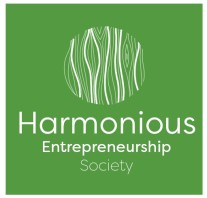
In an attempt to limit the spread of Covid-19, it has become law in many countries for people to wear disposable face masks. 129 billion face masks are being used globally each month and in the UK alone 58.8 million are used each day with 53.3 million being sent daily to a landfill or thrown away, littering streets, the countryside, streams, beaches, and even the sea. This would cover the whole of a city the size of London in two days and is a problem that is increasing and will continue to do so for the foreseeable future. A solution has to be found.
On 2nd March 2021, the Welsh Government unveiled its first circular economy strategy, which includes plans to make the Principality the world’s best country at recycling. Since 2000, over £1billion has been provided to help Welsh Local Government invest in recycling collection services, and already the country is first in the UK for household recycling, second in Europe, and third in the world. Not surprisingly several firms have emerged in the Principality in recent years that specialise in recycling
One such venture, based in the capital, Cardiff, is TCG (Thermal Compaction Group). It was founded by serial entrepreneur Philip Davison-Sebry, who bought the innovative technology the firm uses from its inventor in 2003. Subsequently, he further invested in it and launched the business in 2014. It specialises in the development of sustainable waste plastic recycling systems and has developed machines that can turn single-use plastics and polystyrene (including disposable face masks) into new reusable material, namely solid blocks of plastic that can be reintroduced to the supply chain. By so doing the material volume is reduced by around 85% and the firm claims that in the order of 7500 kilos of CO2 emissions are saved for every 10,000 kilos re-engineered.
The machine, Sterimelt, is one of four that take and recycle hospital plastic waste. Originally it was designed to process the plastic wrappings in which sterile surgical equipment is packaged but since 2020, and the Covid pandemic, it is now being used to process disposable face masks. Currently, it is operational in 7 hospitals in England and one in Wales. The recycled plastic is then sent to the Hull-based company, “Re-Worked” where it is turned into such items as plastic waste bins, that can be used by the hospitals as medical waste bins, thereby creating a circular supply chain. Not satisfied with this TCG is also developing the technology to produce 3D print items to replace, for example, traditional devices such as plaster casts, thereby reducing the gypsum waste.
The firm tested the efficiency of its product by partnering with another Cardiff-based business, “Hardshell”, a pioneering producer of FP3-grade disposable masks. It did so by processing Hardshell’s defective masks that would otherwise have ended up in a landfill. Now it re-engineers 24 tonnes of polypropylene waste each year per unit, has partners across Europe, and is attracting customers from across the world. These include the US Navy, which is particularly interested in the firm’s MassMelt machine. This processes any compressible waste and produces a sanitised log that can be stored, recycled, or disposed of.

As acknowledged by Cari-Anne Quinn, the CEO of the Life Sciences Hub Wales, “the global response to this Made in Wales technology is incredible”. Demonstrating, according to Thomas Davison-Sebry, TCG’s Director of Operations, just “how unsustainable current waste management practices are on a global scale”. However, through the efforts of harmonised enterprises like TCG and Nzambe Matee’s Gjenge Makers in Kenya, the future of single-use plastic is no longer single-use, the chronic environmental problem created by plastics is being addressed, if not eliminated, and entrepreneurship is responding to the sustainability challenge. In particular, TCG, which employs 60 people in Cardiff, is addressing directly SDGs 8 (Decent work and economic growth), 9 (Industry, innovation, and infrastructure), 11 (Sustainable cities and communities), 12 (Responsible production and consumption) and 17 (Partnerships for the goals). It is not just concerned with wealth creation and making money, but in Friedman’s (1970) terms is about “making as much money as possible while conforming to the basic rules of society, both those embodied in law and those embodied in ethical custom”. While all developed and many developing economies have laws protecting the environment, we need to remind ourselves, perhaps, that according to ethical custom there is a long-standing, recognition of man’s moral obligation to the environment. Often this is based on our religious beliefs as in Genesis 2:15, for example, where it is noted that “The Lord took the man and put him in the garden of Eden to work it and keep it”, while in Islam the Prophet Muhammad observed that “The world is green and verdant and verily God, the Exalted, has made you His stewards in it”.
References
E&T Editorial staff (2021). Global PPE Waste Problem could Melt Away thanks to Welsh Innovation. Engineering and Technology, March 23.
Friedman, M.,(1970)5. The Social and Ethical Responsibility of Business is to increase its profits. New York Times. September 13. 122-126.
© Professor David A. Kirby and Harmonious-Entrepreneurship.org (2021). Unauthorized use and/or duplication of this material without express and written permission from the author is strictly prohibited. Excerpts and links may be used, provided that full and clear credit is given to Professor David A. Kirby and Harmonious-Entrepreneurship.org with appropriate and specific direction to the original content.


5 comments